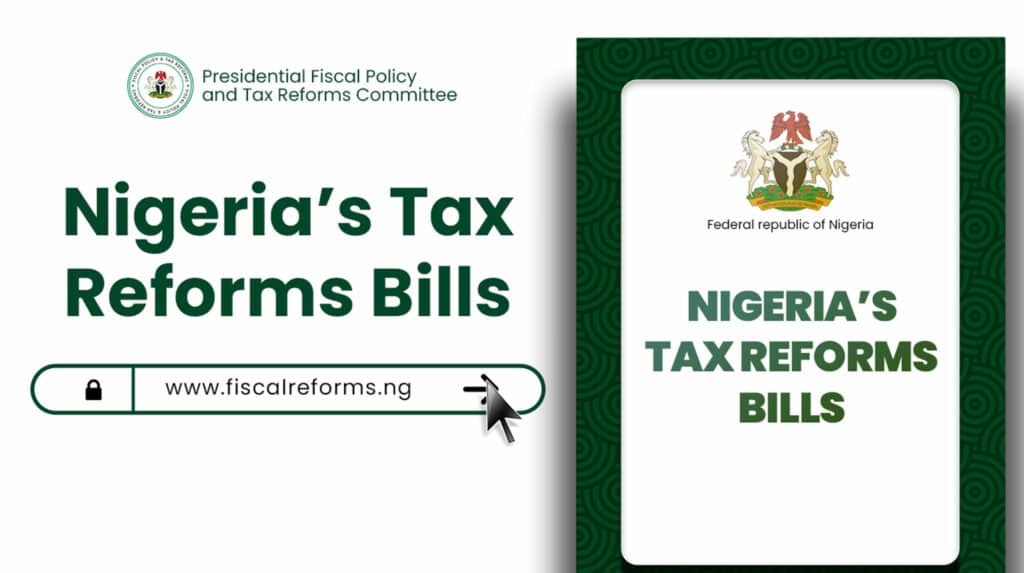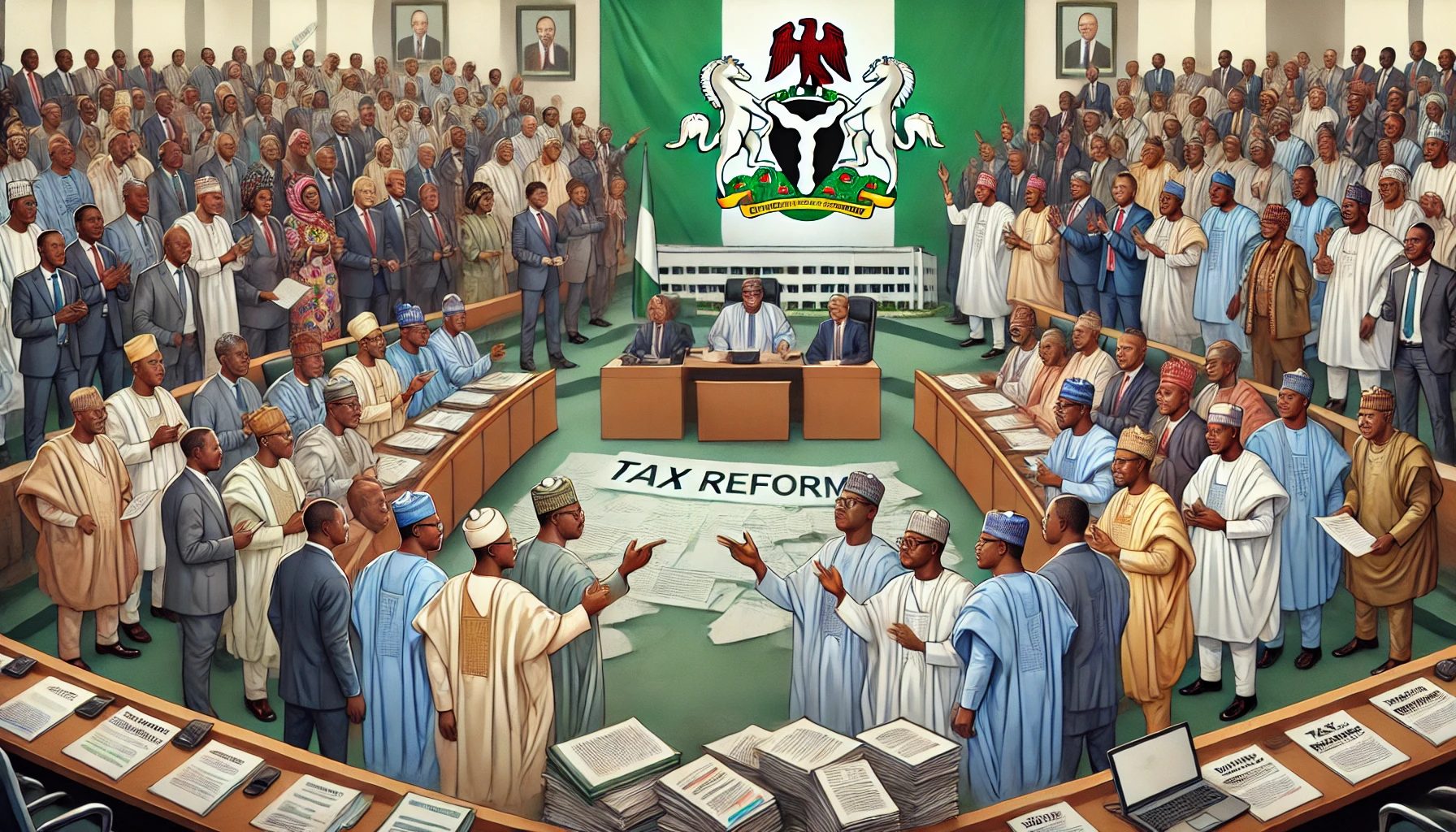A Controversial Leap Towards Tax Reform
Nigeria is at a crossroads as President Bola Tinubu’s proposed Tax Reform Bills have ignited widespread debates, exposing deep divisions within the nation. These reforms, designed to modernise and streamline Nigeria’s tax system, have sparked intense discussions in the corridors of power and among citizens. With northern leaders voicing strong opposition, claiming the reforms will deepen regional inequalities, the debate underscores the delicate balance between economic progress and equitable development.
Introduced in October 2024, the bills aim to simplify tax administration, consolidate existing laws, and implement measures such as exempting low-income earners and small businesses from taxes. However, critics argue that these reforms are not as equitable as they seem, raising questions about their potential impact on Nigeria’s economically fragile northern region.
Join our WhatsApp ChannelNorthern Concerns Over Equity
The pushback against the Tax Reform Bills is spearheaded by prominent northern leaders, including former Vice President, Atiku Abubakar, Borno State Governor, Babagana Zulum, and former Sokoto State Governor, Aminu Tambuwal. Their concerns centre around the potential of these reforms to disproportionately burden northern states, exacerbating an already significant divide between the wealthier south and the struggling north.
Governor Zulum articulated his concerns during an interview with BBC Hausa, stating, “The north is already grappling with poverty, insecurity, and economic fragility. Implementing these reforms without addressing these structural issues will only widen the gap. This bill needs thorough scrutiny, just like the Petroleum Industry Bill, which took nearly two decades to finalise.”
Adding to this sentiment, Atiku emphasised the need for transparency in the legislative process. “Nigerians deserve a fiscal system that promotes justice and equity,” he said. “We must avoid policies that favour a few regions while unfairly penalising others. Transparency in policymaking is crucial for fostering trust.”

Economic Progress or Regional Burden?
Supporters of the reforms argue that the proposed bills are a much-needed step towards creating a modern tax ecosystem. Among its provisions, the reforms propose a gradual increase in VAT rates, the use of technology to enhance tax collection, and reduced tax burdens for low-income earners. These measures, they claim, will boost government revenues and facilitate economic growth.
However, northern lawmakers see these measures as ill-timed and potentially harmful. Senator Abdul Ningi criticised the haste in passing the bill, accusing the government of sidelining critical voices. “Why rush such a significant reform without adequate consultation? This isn’t just about tax—it’s about the survival of vulnerable regions,” Ningi stated during a Senate session.
READ ALSO: Tax Reforms: Bridging Or Widening The Divide?
Economist Dr. Aisha Abdullahi echoed these concerns in an interview. “The timing of this reform is problematic,” she explained. “The removal of fuel subsidies and naira devaluation have already strained households. Adding new taxes, even if indirect, could intensify the economic challenges faced by northern states.”
Diverse Perspectives on the Debate
The divide over the Tax Reform Bills has also highlighted regional disparities in Nigeria’s development. Lagos, a key beneficiary of these reforms, stands to gain from the proposed tax system, leaving other states, particularly in the north, questioning the fairness of the distribution of benefits.
Former Governor Aminu Tambuwal didn’t hold back in his criticism, labelling the reforms as “inappropriate for the current economic climate.” He remarked, “We are still reeling from the impacts of subsidy removal and currency devaluation. Introducing higher taxes now is like adding salt to an open wound.”
Contrarily, Abdulmumin Jibrin, Chairman of the House of Representatives Committee on Housing and Habitat, expressed optimism about the reforms. “The bills will modernise our tax system and reduce the informal sector’s tax evasion. This is a long-term investment in Nigeria’s economic future,” he said on a TV program.
The Suspension and the Road Ahead
Faced with mounting pressure from northern governors and lawmakers, the House of Representatives has indefinitely suspended debate on the bills. This decision reflects the growing discontent and the need for a more inclusive legislative process.
Professor John Alade, a fiscal policy expert, believes that the delay offers a chance to address the contentious issues. “The government must bring all stakeholders to the table,” he suggested. “Policymaking should not alienate any region. Equity is as important as efficiency.”
Balancing Progress and Fairness
As the dust settles on the suspended debate, the Tax Reform Bills remain a flashpoint for discussions about Nigeria’s future. While proponents view the reforms as an opportunity to strengthen the economy, critics emphasise the need for a policy that ensures no region is left behind.
“Nigeria’s unity is at stake,” concluded Dr. Abdullahi. “This isn’t just about taxes—it’s about fostering trust and cooperation among diverse regions. The government must tread carefully to ensure that progress doesn’t come at the cost of equity.”
In the coming weeks, the nation will watch closely as lawmakers navigate these treacherous waters, hoping for a resolution that balances modernisation with fairness. The future of the Tax Reform Bills will undoubtedly shape not just Nigeria’s fiscal policies but also its social fabric for years to come.
Emmanuel Ochayi is a journalist. He is a graduate of the University of Lagos, School of first choice and the nations pride. Emmanuel is keen on exploring writing angles in different areas, including Business, climate change, politics, Education, and others.


















Follow Us